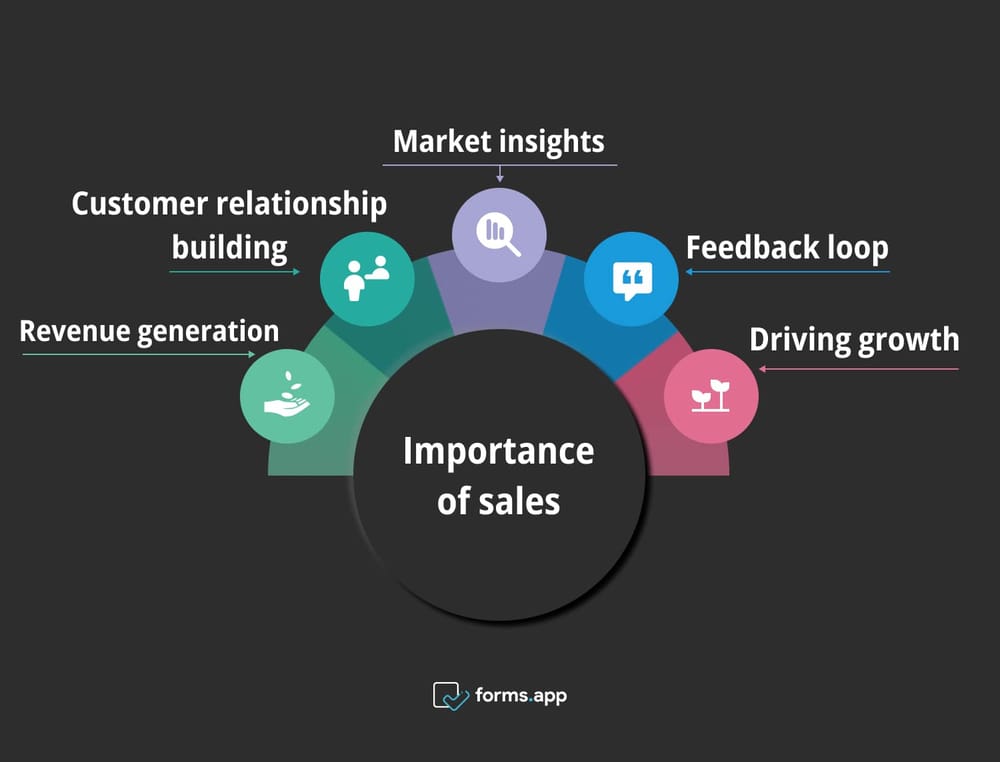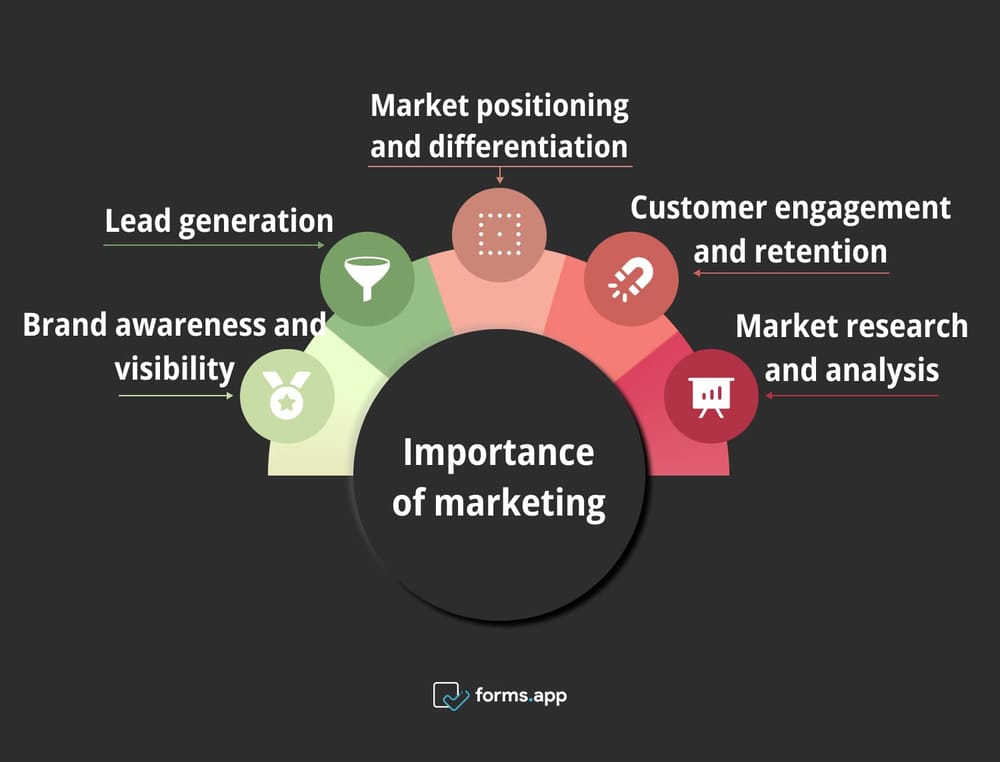In our modern audiovisual age, selling a product requires highlighting it through marketing. Sales and marketing skills are necessary for promoting a product or a service, keeping people familiar with it, and making a sale by drawing their interest through advertisements and campaigns.
Marketing is a crucial part of a product sale. If businesses design their marketing strategically, addressing customers’ expectations, they automatically increase the chances of a profitable product sale. Knowing what your target audience looks for in a product or a service is the key to creating the content and design of your effective marketing. Below, you can see the definition, including sales and marketing examples.
What is sales?
Sales are the process in which customers exchange forms of payment to own a product.
The sales process involves a sales manager conveying the value and benefits of a product. It is a day-to-day activity that encourages financial transactions, and the methods of generating sales also depend on the company's sales team. Sales reps focus on the sales goals of a particular product or a service to create their sales plan.
What is marketing?
Marketing is the ability to analyze consumer behavior to understand their needs, desires, and interests and figure out the reasons why they make purchases.
This enables businesses to gain the trust of more potential customers and keep the interest of existing customers on a long-term basis. A company's marketing team works on marketing campaigns to best represent its product in the market.
Importance of sales and marketing in business
Sales and marketing are paramount components of a business. They are essential elements to the success of any company. Sales and marketing teams are known to work collaboratively to gain a competitive advantage and build success. To draw a clear picture, here we have explained the importance of both sales and marketing:
1. The importance of sales
The sales department serves as the lifeblood of a company and plays a pivotal role. Sales fuel growth, generate revenue, acquire customers, contribute to profitability, and many more. Every company needs a strong sales department to achieve success and thrive in today’s dynamic marketplace. Below, you can see the key significance of sales with examples:

Importance of sales
A. Revenue generation
The sales team is in charge of generating revenue for a business. They actively work on a solid strategy, engaging with prospects, negotiating deals, and closing transactions.
For instance, when the sales team of a software company closes a deal with a client worth £100,000, it directly contributes to the business's revenue and financial growth.
B. Customer relationship building
Sales interactions play a crucial role in building and keeping good customer relationships. This can be through answering the needs by tackling the problems, building trust, and overcoming objections, which takes effective communication and empathy skills.
For example, a salesperson working as a car dealer can provide personalised recommendations depending on the customer’s concern and needs, which leads to building rapport and trust with the customer.
C. Market insights
By refining products and services, understanding customers’ preferences, and being up-to-date with the market trends, sales teams provide valuable insights. This also helps with staying ahead of competitors in the market.
For instance, a sales department participating in industry trade shows can find a chance to interact with potential customers, which can lead to specific product development.
D. Feedback loop
Sales teams provide an important feedback loop to other departments by passing on customer feedback that helps with product improvement, refining business strategies, and advancing marketing campaigns.
For example, a sales representative gets feedback from one of the customers about a product issue. Then, the sales rep shares this feedback with the product development team to find a solution by addressing the issue, which works towards satisfaction.
E. Driving growth
Putting customer needs first and creating effective sales strategies that contribute to advancing your business will help your business grow. For instance, a sales manager sets sales targets for the upcoming quarter that focus on upselling to existing customers. This helps the sales department excel in its targets and position the company for further growth.
To see a more insightful article specified on B2B sales in particular, you can have a look at our ultimate guide to a strong B2B sales process here.
2. The importance of marketing
Similarly to sales, the marketing department is of high significance and plays a crucial role in the success of a business. Marketing drives brand awareness, generates leads, maintains customer relationships, and so on. To keep a successful business and make sales, a company needs a meticulous marketing team to best achieve business objectives. Here are the important factors of marketing with examples:

Importance of marketing
A. Brand awareness and visibility
Marketing is to create brand awareness and attract the attention of potential customers. A marketing department can use a variety of channels such as social media, newspapers, or advertising in order to be familiar to the target audience.
For instance, a clothing brand can advertise a campaign on social media platforms through imagery and storytelling. This increases brand visibility and encourages customers to purchase the products.
B. Lead generation
Marketing teams generate leads by attracting consumers’ interest in their products. The bottom line is to gain more customers and turn that interest into a sale. For instance, a popular publishing company produces audiobooks in several languages, which are promoted through social media advertising.
As a result, they attract a significant number of leads interested in this particular product. It is then transferred to the sales team for follow-up.
C. Market positioning and differentiation
Marketing helps businesses position themselves effectively and beneficially in the market. It also highlights the strengths and differences between these businesses’ offerings and those of their competitors in the market. For example, a shampoo product can stand out by offering its natural ingredients and positioning itself as cruelty-free and eco-friendly compared to other similar products in the market.
D. Customer engagement and retention
Marketing encourages ongoing interaction with customers to keep them engaged with the product or service. This may include email marketing, social media, or loyalty programs. For example, a private language school can offer special discounts on its language learning program, which can appeal to its existing students. This can encourage them to make repeat purchases and buy more services from the company.
E. Market research and analysis
To create the best marketing strategy, marketing teams need to do substantive research to understand customers’ needs, recent trends, marketing statistics, and competitors’ strategies.
For instance, a phone company’s marketing team can conduct a marketing survey to receive feedback from consumers about their favorite features of a mobile phone. This can help the company to build relevant features to sell more customers.
A quick recap of their importance
As we can see, sales and marketing, both together and individually, are important to a successful business. The collaboration of both sales and marketing departments is vital to generate a substantial profit in a business. Understanding each discipline and how they go hand-in-hand together can help you achieve your business goals.
You can find more details about the importance of both marketing and sales collaboration in our guide, 10 ways to promote collaboration between sales and marketing teams, where we explain how to achieve this successfully and efficiently with tips and examples.
What are the differences between sales and marketing?
Sales and marketing departments share a lot in common, yet they differ in their approaches to generating business, even though their end goals are usually the same. In this section, we have explained the key differences between marketing and sales.
1. Process
Both sales and marketing follow a structured process that helps them accomplish their individual tasks. When the marketing team focuses on who the product appeals to and creates plans and strategies best to reach them, the sales team makes an outline with actionable methods with detailed resources to achieve a sale goal.
In this case, we can say that sales are the front-end department that completes the transactions, and marketing creates the appealing advertisements.
2. Goals and longevity
Both marketing and sales departments focus on generating revenue and growing business. However, marketing mainly focuses on long-term customer relationships and ongoing business goals by fulfilling expectations and desires, while the sales department focuses on short-term goals from a smaller window, aiming to close sales successfully and efficiently. When marketing depends on sales to close deals, sales depend on marketing to generate leads.
3. Strategy
Due to their difference in business responsibilities and objectives, sales and marketing professionals also differ in the tactics and methods they use to achieve their goals. Marketing departments mainly use campaigns that involve the advantages of a product or a service.
They also take customer needs into account and presume their potential concerns about a product. On the other hand, sales departments spot a pain point that their offering can fix, and try to persuade consumers into purchasing the product.
4. View on customers
The main goal of the sales department is to get the customer to buy a product or a service. From a sales point of view, the customer is the end of the supply chain. On the other hand, the marketing department views customers as the starting point of the process, which also includes their needs and demands for a product.
5. Audience and power
Marketing professionals reach customers through a single marketing campaign, whereas sales professionals need to interact with each customer one-on-one. When marketing campaigns do not need permission from the audience to be heard or seen, sales need to communicate to gain a customer and make an actual sale.
On this account, sales need more power working with a customer one-on-one when, in marketing, you can attract more customers through audiovisual content.
6. Promotion
Marketing departments typically create promotions to appeal to the target audience, while sales departments make promotions which involves the discount offers to close the deal. Even though the two departments follow different methods to create promotions, the common goal is to attract as many people as possible to increase demand for a product or a service.
Final words
In this article, we have explained the definitions of both marketing and sales, highlighted the importance of sales and marketing in a business, and talked about the key differences between marketing and sales.
We demonstrated examples to provide you with insights that show the similarities and differences of both sales and marketing, and how strong they become when they are united to make a successful business. By utilizing the significant elements of both sales and marketing suitably for your product, you can achieve your business objectives ensuring success and prosperity.
forms.app, your free form builder
- Unlimited views
- Unlimited questions
- Unlimited notifications



